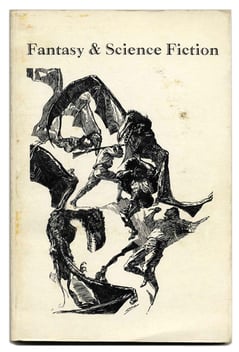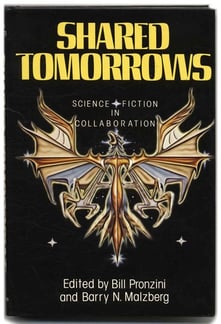How unique are individual novelists? Are works of fiction the products of distinct, creative minds, or could an algorithm actually produce some of the texts we’ve all come to know and love? According to an article* in Slate, a novel co-written in Japan by A.I. (or, artificial intelligence) recently competed for a Japanese literary prize. Should we be excited or concerned about the latest development? Or, should we be more critical of attempts to use technology for cultural production?
A.I. as a Complement to the Writer’s Process
 As the Slate article points out, the existence of a novel written by A.I.—and allegedly competing for literary awards—is a bit inaccurate. To be sure, the increasingly famous (or infamous) A.I.-created novel was actually co-written with a human. In other words, as the article makes clear, “A.I. is actually working with [humans], potentially complementing the creative process but not yet changing it outright.” In fact, a number of Japanese writers have used technology in the process of fiction writing, and several of those “teams” made it past the first round of the Nikkei Hoshi Shinichi Literary Award committee.
As the Slate article points out, the existence of a novel written by A.I.—and allegedly competing for literary awards—is a bit inaccurate. To be sure, the increasingly famous (or infamous) A.I.-created novel was actually co-written with a human. In other words, as the article makes clear, “A.I. is actually working with [humans], potentially complementing the creative process but not yet changing it outright.” In fact, a number of Japanese writers have used technology in the process of fiction writing, and several of those “teams” made it past the first round of the Nikkei Hoshi Shinichi Literary Award committee.
Shortly after the award committee made public its list of works that had made it past the first round, an article** in the Los Angeles Times reported on the influence of artificial intelligence in the writing process and the Japanese literary prize. First, readers should know that this award isn’t just for any work of fiction—it’s specifically given to science fiction, and the “award is unique in that it accepts entries from applicants who are not human beings,” according to the Los Angeles Times article. In other words, the prize is already set up to review works written by A.I. programs and other forms of technology.
While the Slate article suggests that A.I. was only a small part of the writing process—and the Los Angeles Times article confirms that human involvement was approximately 80 percent in terms of creating the text—the computers were the physical writers of the works of fiction. What do we mean by that? In short, the humans involved didn’t actually type the science fiction entered as submissions for the award. Instead, the computers were responsible for the actual drafting.
How Does A.I. Writing Work?
 If a computer physically wrote the novels that made it past the first round of the Japanese literary prize review, what did the humans do? The human co-authors made decisions about characters, plot, and specific details that would enter into the novels and short stories. Then, they “entered words and phrases from an existing novel into a computer, which was able to construct a new book using that information.” In other words, the “cyborg novels” co-written by A.I. were largely recycled and repurposed from previous works. To be sure, the computers were not creating language from scratch.
If a computer physically wrote the novels that made it past the first round of the Japanese literary prize review, what did the humans do? The human co-authors made decisions about characters, plot, and specific details that would enter into the novels and short stories. Then, they “entered words and phrases from an existing novel into a computer, which was able to construct a new book using that information.” In other words, the “cyborg novels” co-written by A.I. were largely recycled and repurposed from previous works. To be sure, the computers were not creating language from scratch.
Yet given the positive response from the Japanese literary award committee, we shouldn’t be too quick to dismiss the possibility of future A.I.-authored novels. Indeed, the science-fiction writer Satoshi Hase emphasized the quality of the novels already produced, citing one of the works in particular: “I was surprised at the work because it was a well-structured novel.”
Until you’re able to check out these A.I. co-authored novels for yourself, why not explore some other notable works of science fiction? We recommend diving into a novel by Ray Bradbury or H.G. Wells, or if you’re more interested in modern and contemporary Japanese science fiction, we recommend exploring the literature of Sakyo Komatsu or Masaki Yamada.
*Read the full Slate article here.
**Read the full Los Angeles Times article here.









